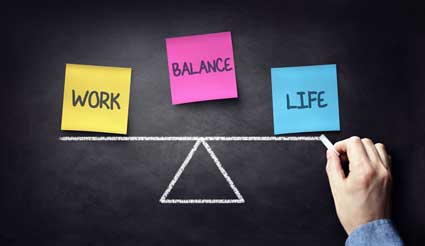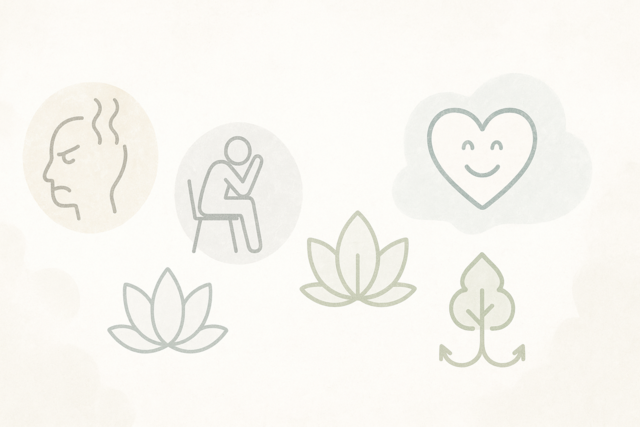Objectives:
In this article, we will explore Keys 6 through 10 and learn how actions such as cleansing our environment, cultivating self love, and setting boundaries can all help on the journey to healing.
Section 1. Key # 6 - Physical, Spiritual, and Mental Cleansing
There is a constant buildup of toxins in all of us, whether it be from the environment, the food we eat, or the stress and emotional trauma we endure over a long period of time. In order to maximize your healing journey, it is necessary to detox these areas and make room for more vibrant energy. In some areas, this entails implementing physical changes, in others it is more of a change in mindset, in which positive affirmations play a large role.
Here are a few suggestions for cleansing out the toxic clutter in these three areas:
Physical
- If you are a person that hoards lots of items or lives in constant clutter, take a day or two and purge any old, unneeded, or unused items. A cluttered environment reflects a cluttered mind and does not support physical and mental healing.
- If you tend to eat mainly junk and processed foods, contemplate adding more whole foods, including lots of fruits and vegetables to your diet. This will help to restore energy, correct digestive issues, and lift brain fog and emotional ups and downs.
- If mostly sedentary, incorporate some type of movement into your routine on a daily basis. This can be something as simple as taking a long walk with your pet or loved one, or joining a gym to work out regularly. Choose what is comfortable for your lifestyle and current activity level and gradually increase your exertion over time. You will be rewarded with more energy, better sleep, and amazing mental clarity.
Spiritual
Cultivating a spiritual practice is beneficial to all areas of your life, including your health. Connecting to a higher power provides motivation, assurance, and a means of counsel when things may seem at their worst and no one around you seems to understand. Spirituality can help you to feel centered and not easily upset, and the ability to release outcomes to a higher power liberates one from many of the burdens we place on ourselves.
Everyone has their own definition of spirituality. Identify what it means to you, and make a habit of regularly connecting to this always present source of wisdom, guidance, and compassion. It helps to set aside time on a daily basis to commune spiritually. Those who do so often report a greater feeling of contentment and direction in life.
Mental
Unfortunately, stress is a part of life. Most of us live a very hectic lifestyle, have multiple responsibilities, and little time to decompress. Even for those who supposedly perform best under pressure, there comes a time when burnout is inevitable, if you do not take the time to unplug and relax periodically.
Also, major life changes, such as a birth, death, loss of employment, or a debilitating illness can cause despair and mental anguish. Most people turn immediately to antidepressants, which, at best, are only documented to help one third of those who use them and can have some very unfavorable side affects. Instead of medicating and suppressing the pain, using the introspection exercise, in addition to affirmations, can be a more effective means of coping.
Oftentimes we are harder on ourselves than anyone else could possibly be. Our inner critic can be a constant detractor, always ready to let us know how ineffective, unintelligent, and unlovable we are. We constantly compare ourselves to others and find fault with the way we think, feel, and act. Unless this mindset is corrected, real healing will remain elusive.
Realize that the primal part of your brain -- often referred to as the "lizard brain," is hard-wired for survival. However, this part of us is not very evolved and often sees situations as more threatening than they actually are. Also, one of the main roles of the lizard brain is to protect the ego -- and to do so, it hates for you to take risks. This is one of the reasons for the constant negative messages such as:
"Don't go for that promotion, you'll just be disappointed."
"You're not smart enough to go back to school, why bother?"
or
"You're not as pretty as the other girls don't even think you can compete."
The well-meaning lizard brain is trying to protect you from harm and disappointment, but inadvertently causes a ton of mental and emotional confusion and anxiety. By learning to distinguish the lizard brain from the voice of your highest self, you can learn to ignore those messages and eventually remove them from your psyche altogether.
Section 8. Setting Boundaries
One of the reasons why we get sick is that we are overwhelmed with too many responsibilities and the demands and the energy of too many people. In order to truly take control of your health and well being, it is imperative to set boundaries. Some people feel uncomfortable doing this, because they see it as being selfish or unloving. On the contrary, taking time to serve your own needs and maintain your balance actually allows you to give more to others and to do so with more generosity of spirit.
As you think about the types of boundaries you need to set to be successful, consider the following questions:
- Is there anyone in my life that constantly drains me and doesn't fill me up?
- What tasks do I dread doing that I can refrain from or delegate to others?
- Do I take on too much at work, in the community, or at home?
- Am I constantly serving as the shoulder to cry on for everyone, which is overloading my own emotional space?
- What things do I do to nurture my own sense of peace and creativity? How often? Can I do them more?
- What are some things or people that have been really bothering me that I have been afraid to speak up about?
- What are three things I would love for my significant other to do, which would give me more free time, peace of mind, or enjoyment?
Use your notebook to record the answers to these questions. You may be surprised at what is really draining you and the things that, if you thought about it, you could easily delegate. Resolve, one at a time, to act on what you've discovered. Your health will thank you.
Some of the steps we have outlined so far may seem a bit scary, especially if you are used to accepting things the way they are, and not speaking up for your own needs. Also, it is entirely possible that when you come into your own personal power and set the boundaries you need to, some people in your life will balk. If people are used to you always being available for their every need and then you scale back, this forces them to take back the responsibility they previously foisted upon you. Many people will not want to take accountability for themselves and this may be a bit uncomfortable for them.
Below are some ways that you can reach out and communicate your needs in a non-threatening manner:
- Let your loved ones know that you are embarking on a journey to find more balance and better health. Explain to them what this means to you and how you will be a better spouse/mother/father, etc.
- Ask for the help and support of those close to you in meeting your goals. This may mean that your children perform more chores around the house, or that your partner takes on some household responsibilities, or helps with the children.
- Let your friends and co-workers know what you are up to. As you transition to a more spiritual and balanced life, you may not be as available for socializing and some of your interests may change. Be prepared for some people to retreat, but this means they were not the right people to support you in the first place.
- Invite those close to you to join you on your new path of discovery.
Trusting Others
Another important area is trust-building. Many of us have endured some personal trauma that may have caused us to become guarded or close off our emotions. This is completely understandable, but when you do not allow anyone to get close to you, you also cut yourself off from potentially beneficial relationships and experiences.
Although scary, allowing yourself to be vulnerable is critical to living a fulfilling life with intimate and fulfilling relationships. The key is to develop the insight and wisdom to understand who is a good person to allow into your inner circle and who you should avoid. If an individual or opportunity is not in alignment with your highest self and deepest aspirations, be accountable and decide that it is not for you.
Section 10. Maintenance
When embarking on the road to self improvement and healing, it is important to realize it is a constant, ever-evolving journey. Unlike so much of what we implement, but can never sustain, to see real progress in health, you have to commit to proper long-term maintenance of the mind and body. There will almost surely be setbacks and distractions. However, vowing to reset your compass if you move off track is one of the best things you can do. No need to berate yourself for mistakes made. Just love yourself enough to wipe the slate clean and begin again.
There you have it. The 10 Keys to Wellness. Each one is like a brick in your healthy living foundation, which will support you as you move forward. Be careful not to focus on just a few of the keys and ignore the others. To do so would make your foundation unstable and it may not be able to support you long term.
Food for Thought
After learning all 10 of the Keys to Health, what are your thoughts? Are there some you have already implemented? What have you chosen to focus on going forward?
Conclusion
Health is not a one-dimensional thing. Rather, it is a living, breathing state of being that must always be cultivated. Learning and embodying the 10 Keys to Wellness will help you maintain excellent health and emotional fulfillment.
























